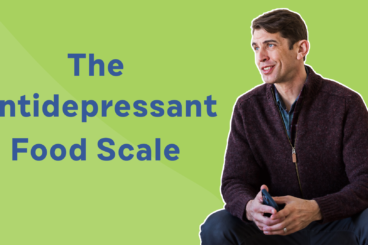Tocopherols and Tocotrienols
Vitamin E actually describes a family of eight antioxidants that specifically protect fat: tocopherols (alpha, beta, gamma, and delta) and tocotrienols (alpha, beta, gamma, and delta). While alpha-tocopherol is the major form in the body and the most studied, growing evidence suggests the other forms of vitamin E also play important roles in protecting brain function, particularly the tocotrienols. Because vitamin Es are fat soluble (they dissolve in fat), they are imbedded in cell membranes, where they protect the membrane from oxidation. They also boost immunity, relax blood vessels, and protect cholesterol from oxidizing (implicated in the formation of arterial plaque). Additionally, vitamin E influences genetic expression and enzyme activity in a way that decreases inflammation, like inhibiting the pro-inflammatory enzyme COX-2 (the target of powerful anti-inflammatory medications like Celebrex). Given the vital role to healthy brain and body function, it is shocking to learn that 90 percent of Americans don’t consume the Recommended Daily Allowance (RDA) of vitamin E!
Free radicals are highly reactive, uncharged molecules that are formed in the body during energy production and also upon exposure to environmental factors such as cigarette smoke or pollutants. Vitamin E absorbs free radicals and thus the chain reaction leads to cell damage or death. This is particularly important in brain cells which are loaded with polyunsaturated fatty acids like DHA. Key to good moods and memory preservation, these fats are especially susceptible to oxidative damage. (In a cool biochemical synergy, vitamin E is “re-charged” by vitamin C.)
Synthetic alpha-tocopherol (the main form in supplements and fortified food) only possesses half the biological activity as the form in found in food. Vitamin E as a supplement has not shown health benefits and has been linked to an increased risk of cancer; whereas natural consumption of vitamin E, the only forms found in the Farmacy, are linked to the prevention of cancer and clinical depression, protection from heart disease, and decreased onset of Alzheimer’s disease. And they taste better!
Top Farmacy Sources: Almonds, Olive oil, Avocado, Sunflower seeds, Olives, Barley, Wheat germ, Dark leafy greens (beet greens, collard greens, Swiss chard), Peppers, Tomatoes.




Do nuts and grains need to be soaked before eating?